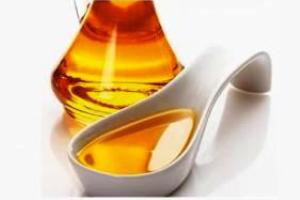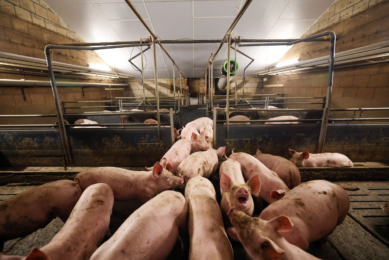Kemin experts discuss lipid challenges and its effects

Oils and fats continue to rank among the most prevalent ingredients used in feed. However, in recent years a wide-range of oil and fat sources have found their way into the feed industry, making it critical for producers to understand and properly evaluate the quality of lipids. To address these concerns as they relate to swine, Kemin assembled a panel of experts to discuss lipid raw material consumption and its influencing parameters that can affect swine health and performance.
According to Julian Wiseman, professor at Nottingham University, the biological composition and nutritional value of fats and oils varies and can greatly influence animal production. He explained that the degree of saturation, the content of free fatty acids, the chain length of constituent fatty acids and contaminants, are all factors that affect the energy value as well as the age of the animal. The Wiseman equation brings these numerous parameters together into one general equation to accurately estimate the apparent metabolizable energy (AME) of the fat.
Furthermore, Jannes Doppenberg, of Schothorst Feed Research, emphasised that the type of fatty acid used can affect digestibility and thus dietary energy. He explained that during the digestion of lipids, the lipase enzyme cleaves the fatty acids, and if the free fatty acid remaining on the resulting monoglyceride is palmitic, stearic or an unsaturated fatty acid, the digestibility will be respectively 80, 70 or 93%. Thus, he said it is better to use a saturated fatty acid, such as lard, as opposed to an unsaturated fatty acid, such as palm oil, which when compared to lard, has a 7% lower digestibility in pigs.
Another parameter that should be considered when evaluating feed fats and oils is the oxidative quality, according to Maria Teresa Rodriquez-Estrada, professor at Bologna University. She explained that feeding animals oxidized lipids results in high levels of oxidative stress in the animal and reduced performance. Therefore, to protect lipids and counteract the negative effects of oxidised products, she stressed the importance of antioxidants in feed.
Reiterating the importance of this topic in regards to production, Dr. Mauro Di Benedetto, senior technical service manager at Kemin, reminded the audience that approximately 70% of swine production costs are derived from feed, thus reducing feed conversion through improved digestibility or increased nutrient absorption has never been more important. A recent trial carried out at Schothorst Feed Research indicated that the unique biosurfactant LYSOFORTE Booster Dry, based on natural ingredients, was able to reduce swine feed cost with 7€/ton feed, while increasing an additional income of 0,8€ per pig versus the control group.
In addition, Di Benedetto said that a common ideology among swine producers is the idea that production can be increased through the amount of live born weaned piglets. However, he explained that a 0.1 reduction in feed conversion results in the same profit as an additional two weaned piglets born per litter.
The experts agreed that to ensure the highest quality of fats and oils for optimum production, the sources of the lipids should be known as well as the factors affecting their quality and efficacy. Additionally, oils and fats should be accurately evaluated.
To provide nutritionists with accurate, reliable lipid profiles containing the AME values and the oxidative status, Kemin recently launched its Lipid Evaluation Test. This new service provides nutritionists with a clear, accurate understanding of the nutritional and quality status of oils and fats in order to make informed decisions on their use, and ultimately, to optimise feed formulations and profitability.
Kemin











